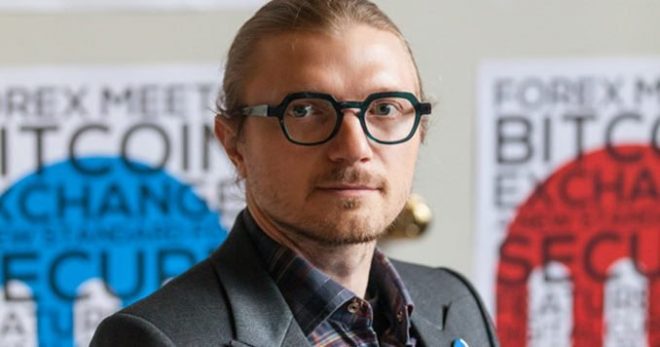The New York Attorney General’s office has pointed a finger at cryptocurrency exchange Kraken for “potential” violation of state regulations. Now, the San Francisco–based exchange is firing back, saying it does not appreciate what it sees as implications of illegality.
“Someone has to be the voice of reason,” Jesse Powell, Kraken’s outspoken co-founder and CEO, told Bitcoin Magazine. “If we all accept corrupt practices as the norm, without saying anything out of fear of unlawful retaliation, what the hell are we doing this for?”
In April 2018, as part of its Virtual Markets Integrity Initiative, the New York Attorney General’s office sent out a voluntary questionnaire to 13 exchanges as part of a “fact-finding inquiry.” Kraken and three other exchanges chose not to respond.
“If you want to talk to us, ask us for a phone call, fly yourself out to San Francisco, invite us for lunch at your office,” Powell said.
Fast-forward five months and the New York Attorney General’s office has now issued its report on the results of the questionnaire. Within the report is a paragraph stating that the office has “referred Binance, Gate.io, and Kraken to the Department of Financial Services for potential violation of New York’s virtual currency regulations.” The implication was that Kraken could still be allowing New York residents to trade on its platform without a proper license.
Three years ago, New York instituted a requirement that any company dealing with cryptocurrency in the state must have a BitLicense. Rather than apply for one, Kraken, based in New York at the time, hit the road, calling the law “a creature so foul, so cruel that not even Kraken possesses the courage or strength to face its nasty, big, pointy teeth.”
Now, safely tucked 3,000 miles away in the Bay State, Kraken still feels haunted by the Big Apple.
NY is that abusive, controlling ex you broke up with 3 years ago but they keep stalking you, throwing shade on your new relationships, unable to accept that you have happily moved on and are better off without them. #getoverit https://t.co/DC5S1WyRnp
— Jesse Powell (@jespow) September 19, 2018
After reading the New York Attorney General’s entire 42-page report, Powell asserts that there isn’t “any mention of evidence that we are still doing business with NY residents.” (In fact, the report mentions Kraken only twice, both times on page 2.) Instead, it appears that the New York Attorney General is tossing the matter over the wall to the New York State Department of Financial Services (NYDFS) to see if they can come up with anything.
Powell doubts they will. “We recently spoke to NYDFS; they are aware we are not serving New York,” he said.
Kraken uses a five-tiered system to identify clients. Tier 0, verified by email only, lets clients enter the site and poke around. If clients want to trade cryptocurrency, per Tier 1 requirements, they have to supply “full name, date of birth, country and phone number.”
At Tier 1, the exchange “does not collect identity documents,” Powell says, but it does do other checks, like look up a person’s IP address to deduce their location and verify phone and address. “If any of our checks fail or our info indicates that the user is in a prohibited geo, they are required to provide identity documents and undergo enhanced scrutiny,” he said.
Powell think the Attorney General’s report was good in that it highlighted important questions consumers should be asking exchanges. However, he thinks calling out the exchanges who chose not to respond to the questionnaire unnecessary.
“After all,” he said, “there are hundreds more exchanges which were never asked and are not named.”
Regulatory clarity in the U.S. is important to the growth of the cryptocurrency industry — as long as that regulation is reasonable, he said. “We operate in a global market and regulators must be careful not to stifle domestic business while giving foreign businesses a competitive advantage.”
As for Kraken, Powell claims his exchange operates with high standards. “Much of what the regulators imagine should be done is already being done voluntarily,” he said. “We push back only where we have a strong view that the regulator is getting the issue wrong, and where the consumer might actually be put in a worse position, or where a government agency is dramatically overstepping bounds.”
Powell summed up: Although Kraken is happy to work with regulators and law enforcement, “we will not stand by silently while rights are trampled on.”
Regardless, calling out regulators, who tend to wield a lot of power in the space, is a bold move for an exchange contemplating listing 1,600 new coins.




